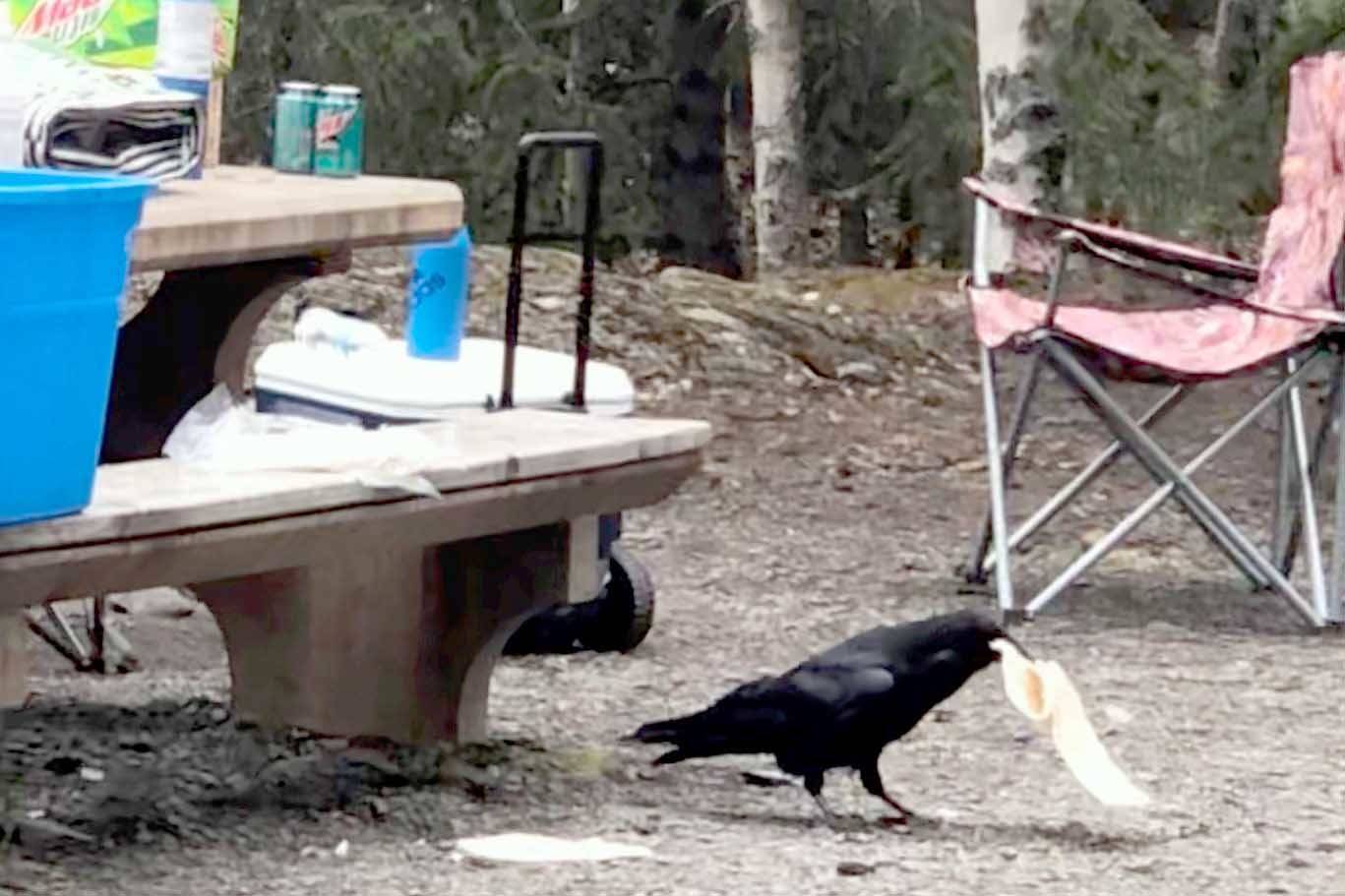Summer is coming to the Kenai Peninsula. Days are getting longer, birds are returning to raise their young, and Alaskans are digging out their camping equipment.
The Kenai National Wildlife Refuge offers a variety of camping opportunities. From the quiet of the Swanson River area to the popular Skilak Wildlife Recreation Area, there are plenty of places to get out and camp this summer.
As a refuge park ranger, I am frequently in the campgrounds collecting fees and talking with campers. One of the most frequent questions I receive is how to reserve a spot in our popular Hidden Lake and Upper Skilak campgrounds. The short answer is that you can’t — all camping in the Kenai refuge is first come, first served.
In order to camp in Hidden Lake and Upper Skilak you must pay for and occupy the site. There is no reservation system for the campgrounds.
When entering either of these campgrounds, grab a fee envelope at the fee kiosk. Once you have located your campsite, fill out the fee envelope.
Detach the Recreation Permit stub and display it on the numbered post using the clip. Then deposit the fee envelope in the brown deposit box at the kiosk.
To show a site is occupied, an RV or tent must be set up on the site. Camp chairs and coolers are not a sign of occupancy. Those items can be too easily moved and new items set up in their place.
Speaking of coolers, I have a confession. I had the worst camping habits before I became a park ranger. I loved going to Hidden Lake for a weekend of camping with friends.
We would bring out a large camp kitchen, and set up our cooler and totes full of food and beer right next to our tents. I would hang a trash bag off the truck mirror and leave it there until it was completely full.
I would throw my empty cans, food waste and garbage into the fire pits and attempt to burn as much as we could before we left. To make a long story short, I did not think about how my habits might affect the next people who used that campsite in bear country.
Now that I am out in the campgrounds throughout the summer, I can see how unattended food left in campfire rings and coolers attract wildlife. The other day, as I was patrolling Hidden Lake, I witnessed a raven fly off with at least 10 large tortillas and the majority of a box of fudge striped cookies.
After picking up the remaining food items and leaving a note for the campers to explain what happened to their food, I reflected upon what that these events might mean for the next campers to use this spot.
Having found food there already, the raven would definitely return to forage. Like bears, ravens have a great memory for where food was successfully found.
Many of the problems we see from wildlife in the campgrounds are due to food being left out or people using the campfire rings as trash cans. So make sure that your camp is clean of any scented items that can attract wildlife.
Keep all food items in a locked vehicle if you are away from your campsite. Please utilize the bear-resistant dumpsters available in Hidden Lake and Upper Skilak campgrounds to dispose of your trash. Nobody enjoys pulling up to a campsite and finding a fire pit full of garbage.
Escaped fires can happen at any time while camping. In 2018, 34 escaped fires were reported on the peninsula. Thirty-two of those escaped from campfires within a ring and two escaped from fires without a ring.
If you are going to be away from your campfire, make sure it is completely out. This means pouring water, stirring the ashes with a stick, and using your hand to check for heat.
Repeat the process until your fire is out cold. It’s a great idea to add a 5-gallon bucket to your camping supply list for this purpose.
Hidden Lake Campground will have hosts for the summer on Ridge Loop, site No. 12. Please stop by with any questions or comments and say, “Hello.” Be sure to ask about our Skilak Wildlife Recreation Area Junior Ranger program. It’s fun for kids of all ages and will be available from the campground hosts.
Park rangers will also be in the campground to answer questions and inform campers about events happening on the refuge. We have some great summer programs, including Discovery Hikes, Critter Camp, Get Out & Get Dirty camp, and a dog-engaging program called BARK Ranger.
Camping out during an Alaska summer is one of the great pleasures of living on the Kenai Peninsula. Hearing loons call on a dead-calm lake or losing all track of time due to endless sunlight are a couple of my great pleasures. If we all follow the golden rule of camping — leave a campsite the way you would like to find it — it’s going to be an amazing summer.
Amber Kraxberger-Linson is a lifelong Soldotna resident and a park ranger for the Kenai National Wildlife Refuge. She enjoys attempting to play the banjo and pretending to be a bicycle mechanic.

